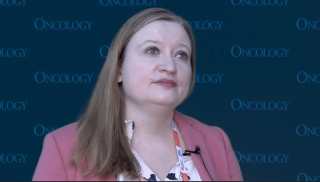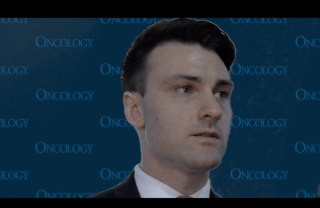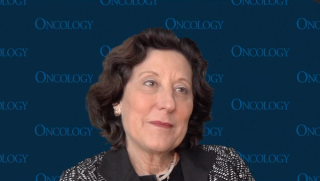
Breast Cancer
Latest News
Latest Videos

Podcasts
More News

TPS 43 ADELA: A Double-Blind, Placebo-Controlled, Randomized Phase 3 Trial of Elacestrant + Everolimus vs Elacestrant + Placebo in ER+/HER2– Advanced Breast Cancer Patients With ESR1-Mutated Tumors Progressing on Endocrine Therapy


Sacituzumab Govitecan Improves PFS in 1L PD-1/PD-L1 Inhibitor Ineligible mTNBC
In the phase 3 ASCENT-03 trial, sacituzumab govitecan did not show an OS detriment vs chemotherapy in previously untreated metastatic triple-negative breast cancer.

46 Neoadjuvant Pembrolizumab or Placebo Plus Chemotherapy Followed by Adjuvant Pembrolizumab or Placebo for High-Risk, Early-Stage Triple-Negative Breast Cancer: Overall Survival and Subgroup Results From the Phase 3 KEYNOTE-522 Study




ASCO 2025: The Presentations That May Shift the Cancer Care Paradigm
From breast cancer to head and neck tumors, the 2025 ASCO Annual Meeting may feature a wide range of practice-changing data across cancer care.

AI-assisted training dramatically reduced HER2-null overscoring and improved sensitivity in HER2-low and HER2-ultralow breast cancer cases.


Final OS data from INAVO120 demonstrate, for the first time, a significant OS improvement with a PI3K-targeted agent in this breast cancer population.

Kit Yu Lu, MD, discussed the implications of the TROPiCS-02 and DESTINY-Breast06 trial data for sequencing ADCs in HR+/HER2– breast cancer.


Currently, sacituzumab govitecan, T-DXd, and Dato-DXd cannot be compared in HR+/HER2– breast cancer due to a lack of head-to-head trials.

"The data, even in fast progressors and within 6 months of endocrine therapy, [show it] is working," stated Monica Khunger Malhotra, MD.


Navigating Treatment/Testing Decisions in Metastatic HR+/HER2– Breast Cancer
Kit Yu Lu, MD, identifies patients with HR+/HER2– metastatic breast cancer who may benefit from earlier T-DXd or sacituzumab govitecan treatment.




ADC Innovations With T-DXd/Sacituzumab Govitecan in Breast Cancer
Kit Yu Lu, MD, discusses the applications of T-DXd and sacituzumab govitecan for patients with breast cancer.


Shannon L. Puhalla, MD, delves into the clinical application, efficacy, and safety profiles of T-DXd and sacituzumab govitecan for patients with breast cancer.























































